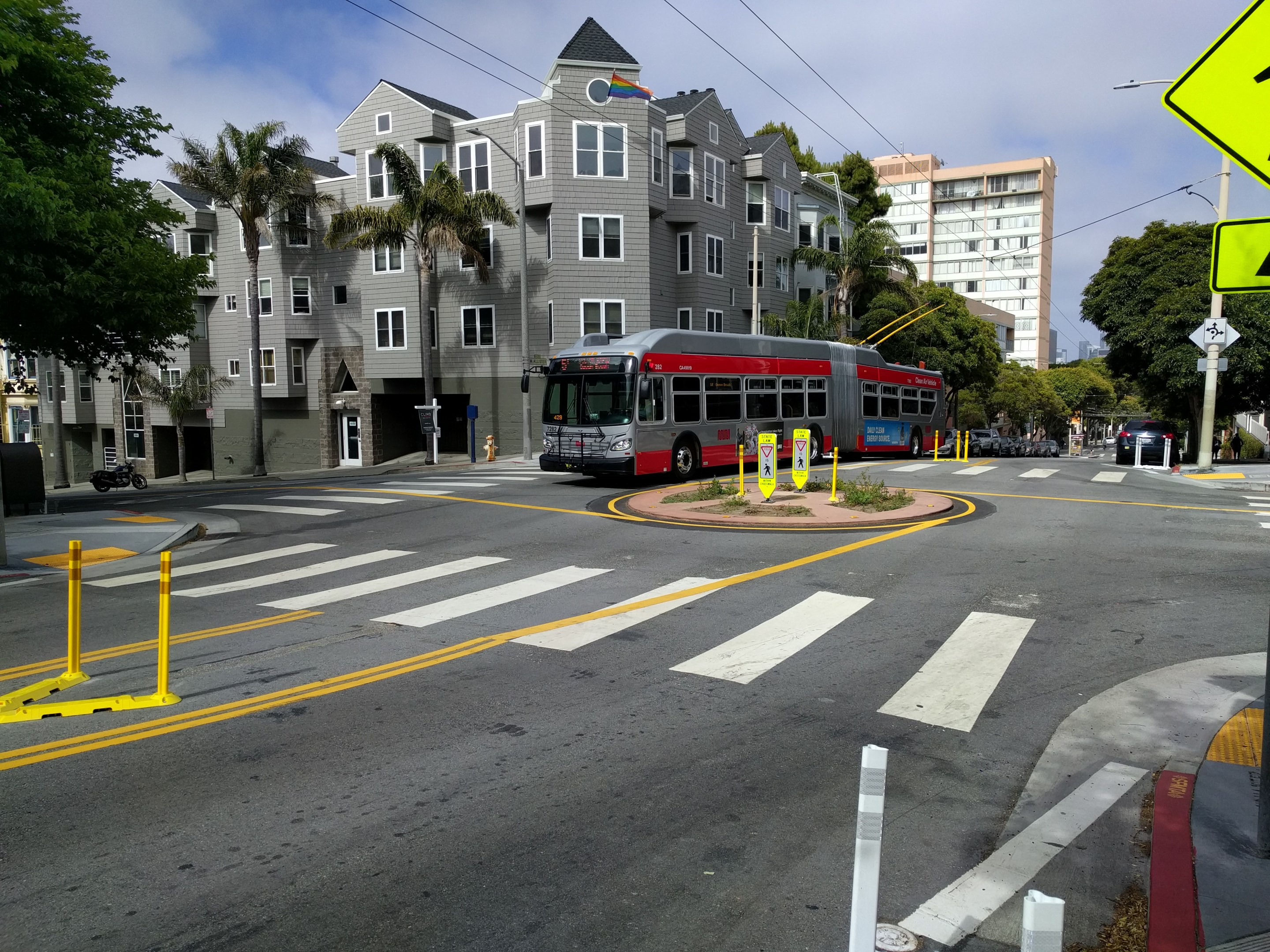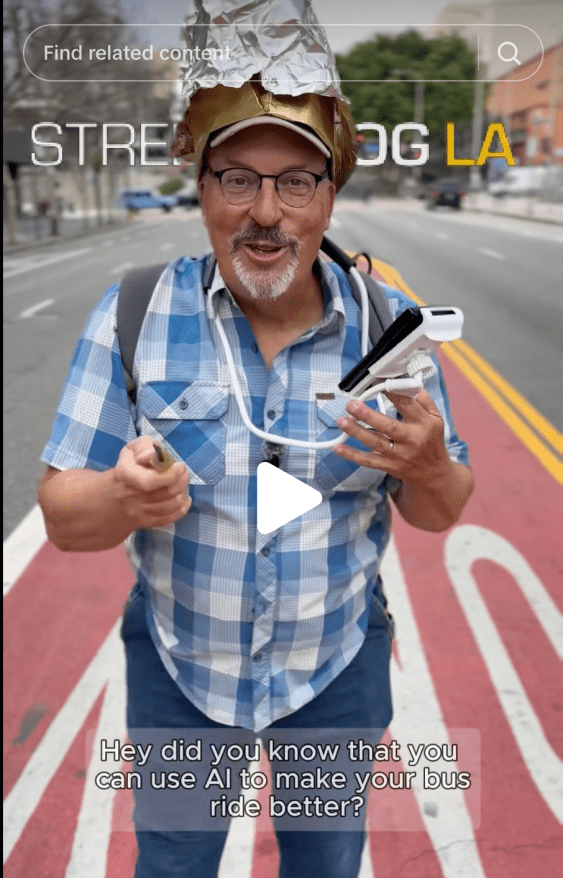Note: Metropolitan Shuttle, a leader in bus shuttle rentals, regularly sponsors coverage on Streetsblog San Francisco and Streetsblog Los Angeles. Unless noted in the story, Metropolitan Shuttle is not consulted for the content or editorial direction of the sponsored content.
This spring, as part of the Muni Forward project, the city installed two new traffic circles and two new signals on McAllister Street to improve the performance of the 5 Fulton bus. The traffic circles, as seen on Steiner in the lead image, prioritize McAllister over cross traffic (stop signs remain for the cross traffic) so that buses don't have to come to a complete stop unless the crosswalk is occupied.
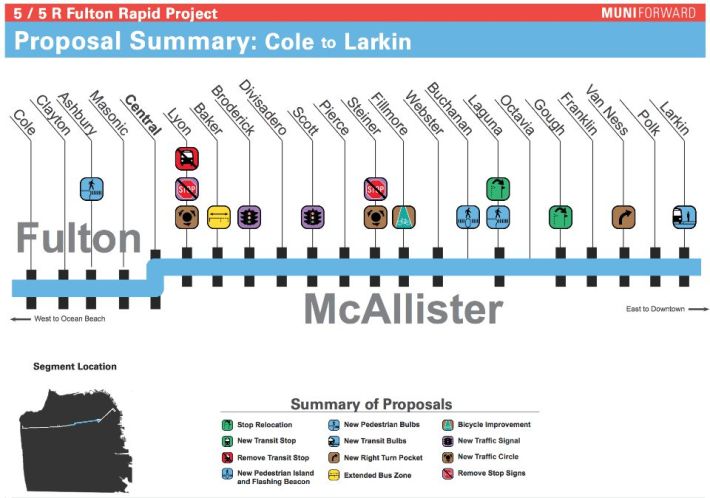
"It does its intended job of slowing traffic down akin to what just stop signs would do, but it creates a sense of priority that you need to wait when the bus is there," said Bobak Esfandiari, a transit advocate with the San Francisco Transit Riders who rides the 5 Fulton daily from the Outer Richmond to Van Ness.
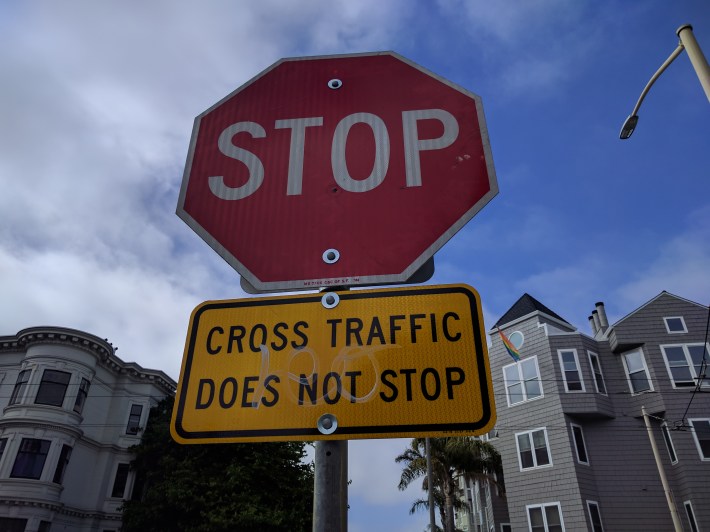
However, Streetsblog observed several cars on Steiner blowing through this stop sign and treating the traffic circle as a yield. This put some motorists in potential conflict with oncoming buses. A local resident familiar with the intersection reported that she's seen a lot of confusion from motorists who are still reacting to the intersection as if it's a four-way stop, expecting the traffic on McAllister to stop too. It's unclear if this has resulted in collisions (Streetsblog has requests in to SFMTA to get more information on how the intersection is working and will update this post accordingly). However, the city has placed an illuminated sign to remind motorists of the new design, as pictured below:
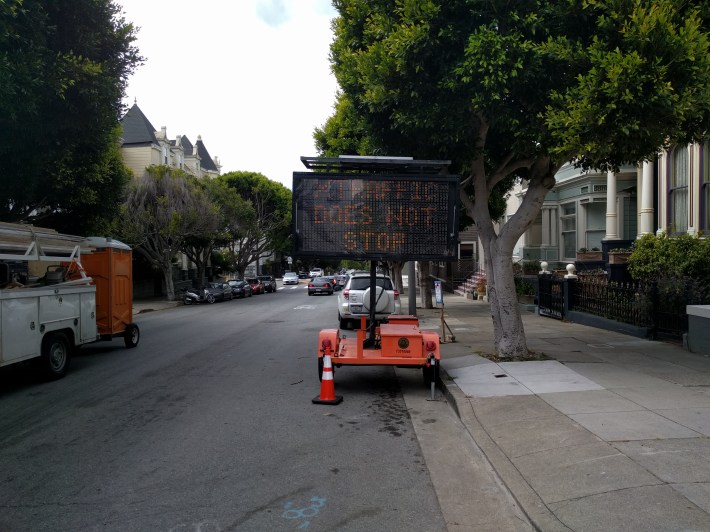
As previously reported, the 5 Fulton project was originally supposed to have five new traffic signals installed to prioritize the bus, but that was reduced after resistance from local residents and motorists. At Lyon and Steiner, which previously had four-way stop signs, traffic circles were used as a compromise (although there was pushback on that as well). Esfandiari, who is also a housing advocate and founder of Grow the Richmond, recalls community protests back in 2014 against putting in traffic lights. "It got watered down in that meeting and in many others," he said.
"This is a classic example of what happens when transit riders aren’t at the table; compromises are made that favor parking and auto traffic over improving the reliability of public transit and safety for people walking," said Rachel Hyden of the San Francisco Transit Riders. "It may seem like a small-scale compromise when it’s one intersection, one block. But it’s that one compromise that directly impacts tens of thousands of daily transit riders."
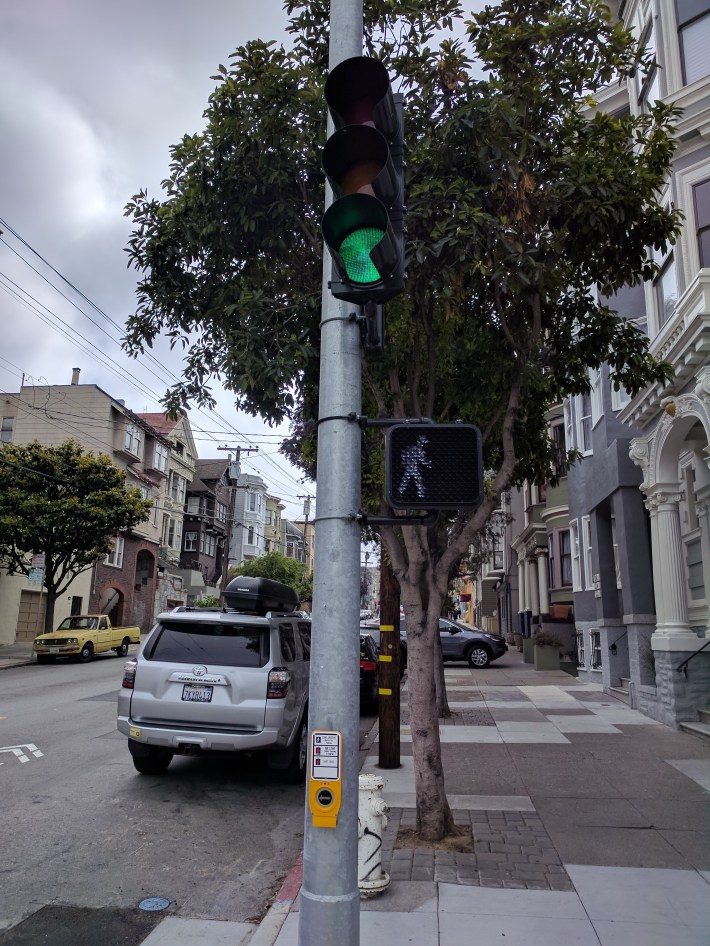
Cyclists, meanwhile, are happy to have the new pavement that came with the project. "McAllister is better. The pavement quality is a marked improvement," reported Tim Hickey, a local resident and advocate who bikes the route regularly (Streetsblog also tested the route and was very impressed). And Esfandiari added that despite the compromises, it has helped his bus ride. "I was like 'put in all the lights, do it do it,' but the circle seems to have marginally done the same thing," he told Streetsblog.
He added that previously, impatient motorists would often go into the opposing lane of traffic to pass the bus at intersections, risking a collision and cutting off and delaying the bus. "They can’t do that if there’s a traffic circle."
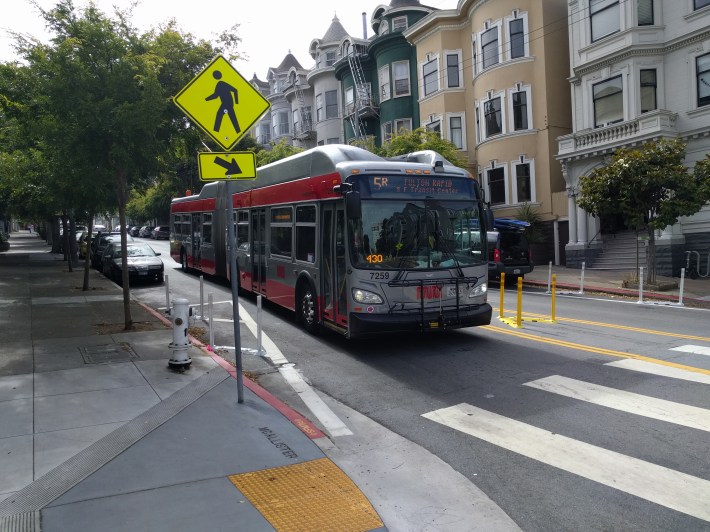
Traffic circles are still relatively rare in San Francisco, although more and more are popping up each year.
What do you think of the traffic circles and other changes on McAllister from the perspective of a pedestrian, cyclist, or bus rider? Post below.
